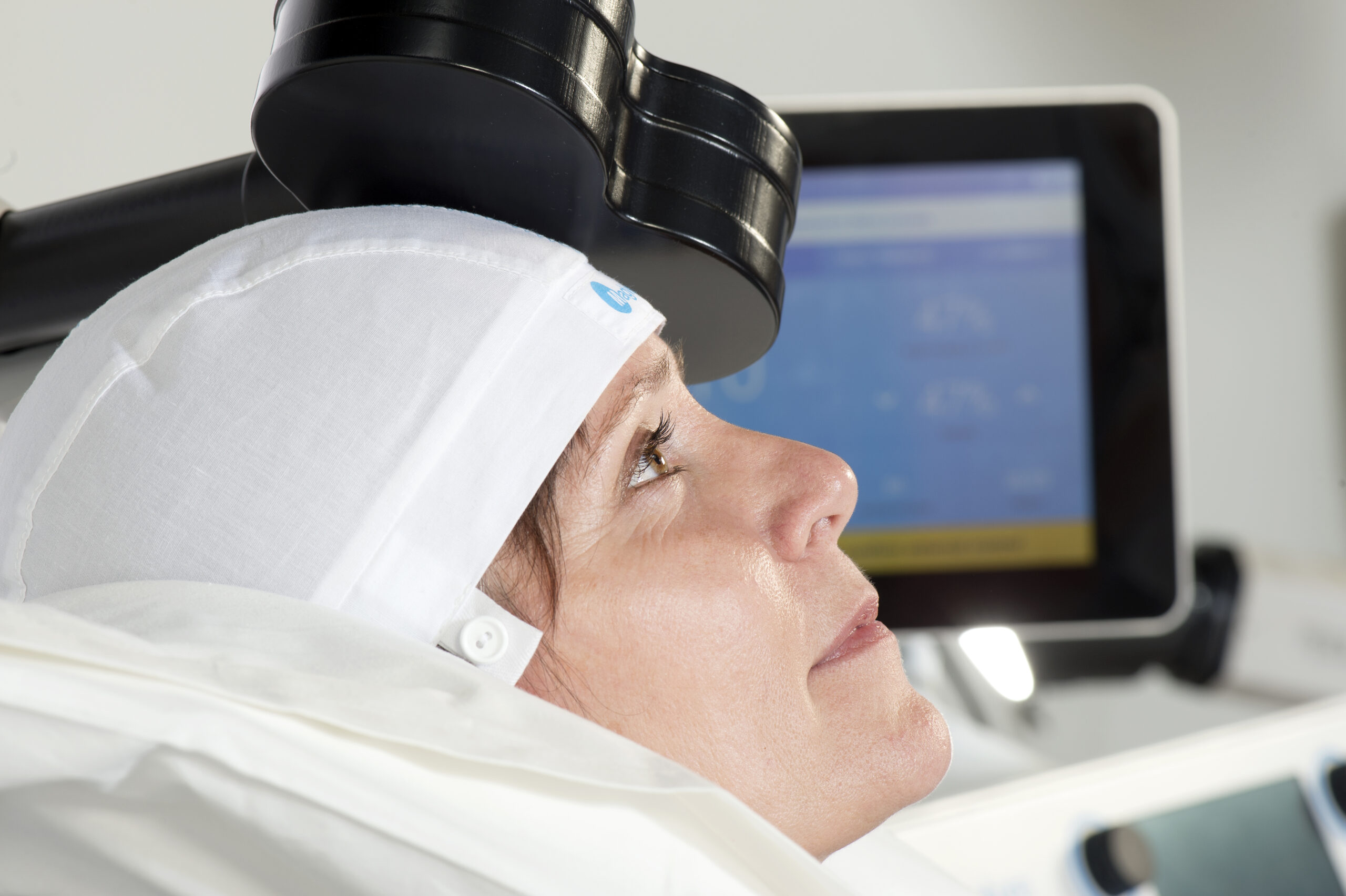Comprehensive Mental Health Support for First Responders
At Olympia Center for TMS and Psychiatry, we recognize the profound and unique mental health challenges faced by first responders.
We have worked with First Responders in a variety of professions::
- Firefighters
- Police Officers
- Emergency Medical Services (EMS/EMT) personnel
- Mental Health Workers
Because of the intense, and often relentless nature of their profession, first responders are at increased risk of experiencing a variety of mental health conditions triggered by stress and trauma.
Dr Penner’s practice is multifaceted. In addition to TMS, another large practice area includes treatment of large numbers of First Responders, in the hundreds over the years. Because of this Dr Penner is acutely familiar with Post-Traumatic Stress Disorder which often leads to severe depression. The scientific literature surrounding PTSD and Major Depression together is constantly evolving. If you experience PTSD and depression together Dr Penner will review the latest scientific literature with you (if indicated) and may suggest customizing your treatment based on the most recent scientific literature.

Unlike traditional pharmacological antidepressant therapy, TMS allows for the treatment of depression, without the associated unpleasant side effects, such as decreased libido, weight gain, and emotional blunting (inability to experience the full range of human emotions such as joy and happiness).

Our Expertise
Our specialty lies in addressing the specific needs of those who have dedicated their lives to serving the public. We are proud to have one of the most experienced outpatient first responder treatment teams in the state of Washington.
Our providers are highly trained to address the unique circumstances that first responders face and are dedicated advocates for our patients. We understand the stigma that can surround mental health issues within the first responder community.
That’s why we have created a safe, supportive, and understanding environment to serve these valuable members of our community.
Success Stories and Outcomes
Many of our patients have shared their success stories, highlighting the significant improvement in their quality of life after undergoing TMS therapy. Patients have also reported a notable improvement in depression symptoms.
Data on recovery rates and patient testimonials focus on the treatment process and the positive changes experienced. We recognize the importance of giving back to the local community. We are passionate about making a difference in people’s lives and believe we have a duty to invest in the future of our community.
Addressing PTSD
Post-Traumatic Stress Disorder (PTSD) is a common mental health issue occurring in much larger percentages among first responders than of the general public. Exposure to traumatic events, life-threatening situations, and the constant stress of their roles can lead to PTSD, which can manifest in symptoms such as:
- Flashbacks and vivid memories of the event
- Nightmares or intrusive, uncontrollable thoughts related to the trauma
- Anxiety and panic attacks when reminded of the trauma
- Hypervigilance and jumpiness
- Loss of motivation and pessimism
- Social withdrawal, feeling detached, or avoidance behaviors
- Trouble concentrating or remembering things
- Engaging in destructive or self-destructive behaviors
- Dependencies on or misuse of alcohol, drugs, or other behaviors
PTSD is widely understood to affect individuals who have experienced traumatic events including natural disasters, accidents, violence and abuse, civil unrest, or emotional disturbance. However, symptoms may not occur until days or months after the fact.
PTSD can also result from seemingly insignificant situations that may be experienced repeatedly, such that the individual may minimize the onset of symptoms. Symptoms may not even be apparent to the individual directly, but may be noticed by their coworkers, friends, or family members.
Struggles with mental health can be incredibly difficult for first responders to acknowledge, let alone to seek treatment for. At Olympia TMS we are proud to support first responders on their journey by de-stigmatizing this issue and the treatments that can bring significant relief from the effects of Depression with PTSD.
During a TMS session
An electromagnetic coil is placed over the patient’s head and delivers strong pulses into the brain that can stimulate neurotransmitters. With the help of TMS, depression symptoms are targeted and relieved. TMS is pain-free and does not require sedation.
TMS targets specific areas of the brain involved in mood regulation and fear response. By stimulating these regions, TMS can help reduce symptoms of PTSD, providing significant relief and improving the overall quality of life for first responders. Our experienced providers tailor TMS treatments to each patient's unique needs, ensuring the best possible outcomes.
Learn more by reading our TMS FAQs.

Combatting Depression
Depression is another common and serious issue among first responders. Whether due to the constant exposure to critical incidents, the stress of the job, or other related experiences, depression can deeply affect a person’s life. Symptoms of depression include persistent sadness, loss of interest in previously enjoyed activities, fatigue, and difficulty concentrating. These symptoms can be debilitating and are often resistant to traditional treatments.
TMS therapy has proven to be highly effective in alleviating symptoms of depression, especially in cases where other treatments have failed. Through regular sessions, TMS helps restore balance in brain activity, leading to improved mood and better overall functioning. Our team of experts is committed to providing a supportive environment where first responders can receive the care they need without fear of stigma or judgment.
Many first responders who are struggling with these symptoms may turn to drugs and alcohol to find relief or cope with flashbacks and intrusive thoughts.
The demanding and often traumatic nature of this work can take a toll, leading to significant disturbances in healthy functioning that may have gone overlooked for too long.
- Emotionally and psychologically overwhelming work experiences
- Over time, traumatic experiences can lead to the development of anxiety disorders
- Additional factors: demanding schedules, long and/or irregular work shifts, sleep deprivation lead to chronic stress
- The pressure to make life-or-death decisions can also lead to mental overextension and exhaustion.
Questions?
If you have any questions please call (360) 539-1736 or message us and we’ll be glad to answer any questions and schedule an appointment.
Patient-Centered Care
At Olympia Center for TMS and Psychiatry, we prioritize the comfort and well-being of our patients. Our team moves at a pace that is comfortable for the patient, never forcing treatment modalities.
We provide comprehensive support and education, empowering patients to make informed decisions about their treatment options. Our goal is to help each individual achieve optimal mental health and well-being.
Contact Us
If you have any questions or would like to schedule an appointment, please call us at (360) 539-1736 or MESSAGE US.
At Olympia Center for TMS and Psychiatry, we are dedicated to providing the highest quality of care for our first responders. We understand the sacrifices you have made, and we are here to support you every step of the way on your journey to mental wellness.
TMS is FDA Approved
The current use of electromagnetic induction for transcranial stimulation dates back to 1985. Dr. Tony Barker and his colleagues invented the initial type of TMS in Sheffield, UK. Moreover, Barker scientifically proved the influence of magnetic stimulation on the motor cortex of the human brain in 1985.
In 2002, the Canadian Association of Health approved the medical results and benefits of TMS. Many devices are available for repetitive electromagnetic stimulation. Olympia Center for TMS & Psychiatry, uses the MagVita TMS Treatment System with Theta Burst Stimulation.
The Food and Drug Administration of the United States granted approval for TMS as a treatment for depression on October 8th, 2008.
